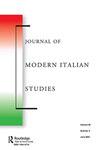流离失所:一段挥之不去的历史的叙述
IF 0.7
3区 历史学
Q1 HISTORY
引用次数: 0
摘要
在本文中,基于最近的位移理论,我提出了一个后位移的定义,即“位移的位移”,或者已经位移的历史的位移。分析集中于1932年由法西斯政权建造的意大利城市Latina的民族志案例。考虑到它有争议的过去不能被庆祝,拉丁美洲作为一个流离失所的城市,它的历史不能作为一个场所的形成,意义的形成和未来的形成。我分析了拉丁裔居民和当地政府官员对城市历史的选择性重新阐述是如何取代已经被取代的历史的。通过对法西斯主义的短暂沉默和与国家历史的重新联系,这些叙述允许过去被谈论和记住,同时也培养了一种适当的自我意识。尽管如此,法西斯主义不可能被完全抹去,它仍然是一种挥之不去的缺席。因此,本文提供了对(后)位移和法西斯主义在当代意大利的存在和不存在的反思。本文章由计算机程序翻译,如有差异,请以英文原文为准。
Displacing displacement: narratives for a haunting history
ABSTRACT In this article, building on recent theories of displacement, I propose a definition of post-displacement as a ‘displacement of displacement’, or the displacement of already displaced histories. The analysis focuses on the ethnographic case of Latina, an Italian city built in 1932 by the Fascist regime. Given its controversial past that cannot be celebrated, Latina is presented here as a displaced city, whose history cannot serve as a locus for place-making, meaning-making, and future-making. I analyse how the selective re-elaboration of the city’s history by Latina’s inhabitants and local public officials displaces an already displaced history. Through a momentary silencing of Fascism and renewed connections to national history, these narratives allow for the past to be spoken about and remembered, while also fostering a sense of the self in place. Nonetheless, Fascism cannot be completely erased and remains a haunting absent presence. This article thus offers a reflection on (post-)displacement and on the presence and absence of Fascism in contemporary Italy.
求助全文
通过发布文献求助,成功后即可免费获取论文全文。
去求助
来源期刊

Journal of Modern Italian Studies
Multiple-
CiteScore
1.00
自引率
25.00%
发文量
66
期刊介绍:
The Journal of Modern Italian Studies (JMIS) is the leading English language forum for debate and discussion on modern Italy. This peer-reviewed journal publishes five issues a year, each containing scholarly articles, book reviews and review essays relating to the political, economic, cultural, and social history of modern Italy from 1700 to the present. Many issues are thematically organized and the JMIS is especially committed to promoting the study of modern and contemporary Italy in international and comparative contexts. As well as specialists and researchers, the JMIS addresses teachers, educators and all those with an interest in contemporary Italy and its history.
 求助内容:
求助内容: 应助结果提醒方式:
应助结果提醒方式:


